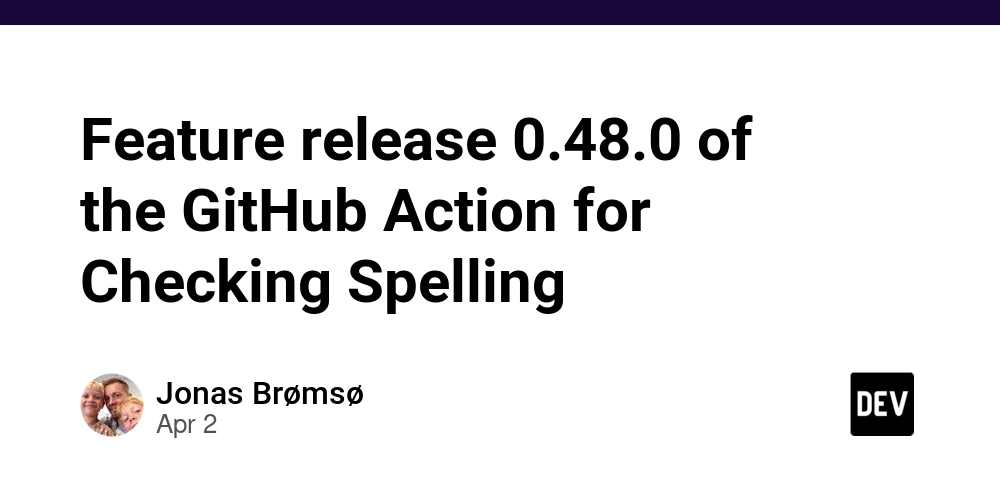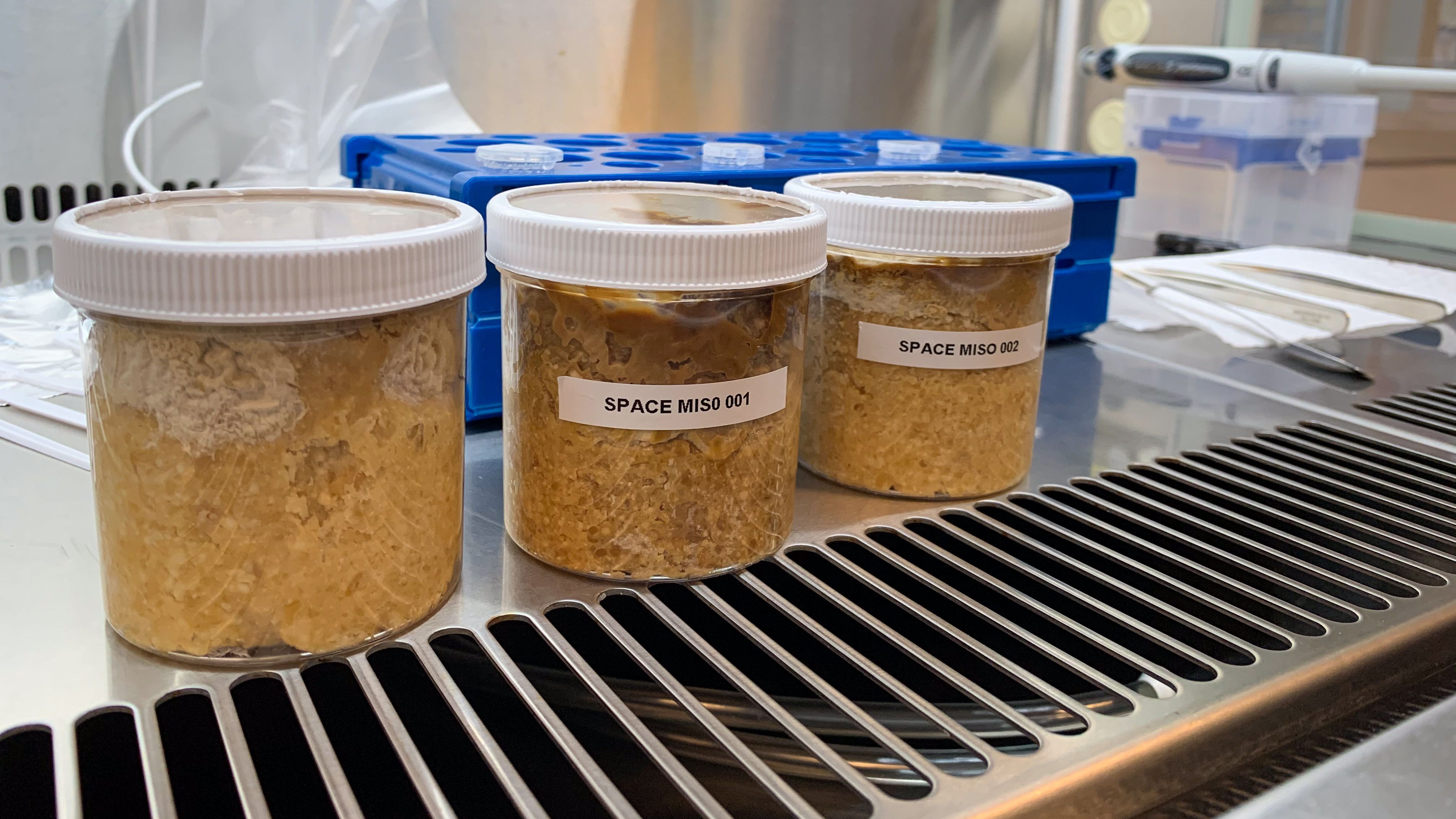Are Blue Zones a Mirage?
The age detectives are fighting.

Subscribe here: Apple Podcasts | Spotify | YouTube | Overcast | Pocket Casts
Do you want to live forever? How about to at least 105? You’ve probably heard of blue zones—amazing places where people live disproportionately longer and healthier lives. From Okinawa, Japan, to Ikaria, Greece these regions of the world have captured the imagination of an aging world.
Most of the advice that researchers have extracted from these places are what most people consider just common sense. Don’t stress too much or eat too much or drink too much alcohol. Make sure to eat plants and legumes, build community, and protect familial relationships.
But while this might be fine advice, at least one researcher is skeptical that the underlying research holds up.
On this week’s episode of Good on Paper, I talk with Dr. Saul Newman, a researcher at the University of Oxford and University College London, who seeks to debunk the blue-zones research with studies of his own. His critics accuse him of writing a “deeply flawed” paper, keeping the debate active. (You can read their arguments here.)
Newman’s argument is pretty straightforward. The documentation certifying people’s births is really hard to verify, and there are many documented cases of age fraud. Some of that fraud is intentional—people claiming to be older than they are for cultural or financial benefit—and some is unintentional, thanks to shoddy recordkeeping or researchers getting fooled or making mistakes.
While this debate rests on methodological questions that we can’t fully explore in this episode, Newman’s provocation raises important questions about how much we should trust some of the most popular ideas in longevity research.
The following is a transcript of the episode:
Jerusalem Demsas: According to Our World in Data, in 1800, not a single region of the world had a life expectancy longer than 40 years. By 2021, the global average life expectancy was more than 70 years. It’s still not enough. We want to live longer, healthier lives. What can we do about it?
You’ve probably heard of “blue zones,” regions of the world where researchers claim to have found disproportionate numbers of people living into their hundreds. The first such Eden was Sardinia, Italy. Then Okinawa, Japan, and Loma Linda, California, among others.
But in recent years, despite the prevalence of cookbooks and diets and Netflix docuseries about these places explaining how to learn from the lifestyles of people living in these regions, something hasn’t quite added up.
My name’s Jerusalem Demsas, I’m a staff writer at The Atlantic and this is Good on Paper, a policy show that questions what we really know about popular narratives.
Saul Newman is a longevity researcher at the University of Oxford and the University College London who has become convinced that this research doesn’t stand up to scrutiny. First, when he looks at the regions of the world designated blue zones, they just don’t look like particularly healthy places. The blue-zones theory claims that people live longer in these regions because of their naturally healthy lifestyles, but what Saul finds when he looks at these regions is low literacy, low incomes, high crime, and even short life expectancies relative to the national average. But even more tellingly, according to his research, introducing official birth certificates suspiciously coincides with a steep 69 to 82 percent fall in the number of people claiming to be over 109. A number of other statistical oddities indicate that the people claiming to be over 100 years old are either misleading us or are misled themselves.
Here at Good on Paper, several of the studies we discuss are preprints, which means they haven’t finished going through the formal review process that can take years. We do this because waiting to discuss studies until after they’ve been through that process would mean missing out on tracking important live debates. But I say all that now because, while Saul is convinced of his findings, this is not yet a settled debate. The proponents of blue zones are fighting back and claim he “omits or misunderstands” how rigorous their methods are.
But to hear his perspective on the science of longevity and why he doesn’t trust the blue-zones research, I’m excited to have Saul joining us today.
Saul, welcome to the show!
Saul Newman: Pleasure to be here.
Demsas: So why do people die?
Newman: Why do people die? Well, this is a fascinating question, and many of the people in aging research sort of still admit that we really don’t understand the fundamentals. So it’s actually a surprising thing that something so obvious is something we’re still figuring out. The best approximation we have at the moment is that we look at the inverse question: Why continue to live? What is the sort of evolutionary advantage of continuing to live?
There are two main thoughts. One I favor, and another that’s quite out of date. The out-of-date one is this sort of Darwinian idea that we exist just to make children. And this is the idea that has the problems, because if we exist just to make children, you get stuck with all sorts of awkward questions, like why does menopause evolve? Why evolve not to have children? Why evolve to help other people at the cost of your own reproduction? And we know all these things happen, and they happen across the animal kingdom, which brings us to the second idea.
And the second idea is that we evolve to pass on genes. And because we are related to so many different people, there are a lot of ways to pass on genes, including indirect ways where we help others. This is a sort of still-developing field in answering that question of why we exist, essentially. And it’s a very exciting one because it can explain things like the evolution of menopause, where we’re taking care of grandchildren.
But it can also potentially explain a lot of traits that are very difficult to analyze. Traits like homosexuality don’t make sense in this sort of cruel, hard Darwinian sense of, Oh, you’re just a baby factory. But there is a potential to explain them using inclusive fitness. I mean, that said, there was also the flip-side argument to that: Why do I need to justify myself in terms of evolutionary theory in order to exist? Well, of course you don’t. So it’s a very difficult debate to get through, but it’s also an open question at this point.
Demsas: What exactly is happening, though, when you die? Let’s say you don’t get an illness, right? Like, we know what happens when someone dies of a stroke or has a heart attack or has cancer or some other kind of long-running illness. But if you are just a generally healthy person—you’re in your 80s, or you’re in your 90s—what’s happening to your body?
Newman: It is slowly degenerating, in functional terms. So this is, you know, often very hard to measure, because you have to define what the function of your body is to say, you know, how it’s degenerating, but there are sort of obvious signs. So your metabolic function declines with age. Obvious things, like your physical capacity to run a hundred meters, for example, declines with age. Mental capacity does decline, but it can be much slower. And you know, I think that’s really fascinating, because if you look at, for example, the rankings of top chess players, they decline, but they decline extremely slowly. But essentially, there’s this sort of general systemic decline as you get older in terms of how well you can function.
Demsas: There’s a paper that I know that you wrote about this idea of, you know, as you get older, of course, your likelihood of death increases as you age. But there was a hypothesis that perhaps at a certain point, the rate at which you were likely to die kind of leveled off. So if you made it to 80, if you made it to 90—yes, your likelihood of dying every year was still, you know, elevated relative to a younger person, but it no longer was increasing significantly. What happened with that hypothesis?
Newman: Well, this touches on the best way we have to measure age and aging, and the sort of functional decline is increases in the mortality rate, because once you hit about age 40 or 35, your odds of dying double at a sort of fixed clockwork rate.
Demsas: Wait—what year was that?
Newman: Around 35 to 40. It depends a little bit because—
Demsas: Okay, great. Just logging that. (Laughs.)
Newman: Yeah. It starts to decline earlier, but it’s obscured by something called the “accident hump.” And this is basically, like, what you do when you’re a teenager, right? There’s a big bump in mortality caused by, you know, cars running into trees or jumping off of buildings into swimming pools or whatever it happens to be. But this clockwork doubling means that your mortality, your odds of dying, double usually around every eight years, and there’s really nothing we can do about that.
We can change the baseline, but every eight years, your odds of dying will double and double and double until you reach old age. And so in old age, there’s a hypothesis that mortality rates stop getting worse with age, and therefore that aging rates kind of stop or at least slow down considerably. Now, it doesn’t mean that things are getting better. You end up in this sort of Russian-roulette scenario where it’s a “see if your odds of dying flatten out.” And essentially, you’re playing Russian roulette every three months in terms of your mortality risk.
And what does that mean in terms of human lifespan? So it means something very interesting. It means that there’s no actual limit to how long you can play roulette without losing. You know, there’s a probabilistic sort of cap where eventually you are going to lose.
Demsas: Yeah, unless you’re the luckiest person alive.
Newman: Exactly. So there’s nothing per se ruling out a run of good numbers. But the problem here is that this idea is something that has been fought over for 50-odd years and has not been resolved, because it may be that your odds of dying do keep doubling and doubling and doubling until they hit the odds of dying that equal to one, right? So this is what I call the “maximum survivable age.” And it’s not clear to scientists which of those two was correct—whether we strike a maximum survivable age, where we can’t possibly live older than this age, or whether we reach a sort of grim Russian-roulette scenario.
Demsas: But life expectancy has improved remarkably over the 20th century. I mean, we’re seeing, you know, people with average lifespans of late ’70s in many developed nations, and rates of child mortality have declined significantly. So it seems like there’s a lot that policy, development, changes in public-health strategies can do to improve lifespan.
Is it your sense that—I mean, you just kind of brought up this idea of a maximum survivable age. Is it your perception that there is a number—there is a threshold at which, despite all of these things that you can do to make yourself healthier, to make yourself better, the genetic selection that might exist over generations, there’s just not a chance that humans are gonna live to be 300, 400, etcetera?
Newman: Well, in 2016, I waded into this debate because, like I said, there are two sides. And one of the sides had published an idea that there was this hard limit to maximum lifespan. And they published it in one of the most elite scientific journals there is. And I realized they had made colossal mistakes in their analysis—really just fundamental mistakes. They had rounded off most of their data to zero. They had accidentally deleted everyone who died in May and June, and just really made a complete mess of it. But they had argued for one case, and this case was that there’s a limit to how long you can live, a single limit.
I had another group come along and argue the opposite. Now, the opposite was this Russian-roulette scenario. The problem was that they had done something even worse, because they had taken everybody in Italy over the age of 105 and used them to build this sort of flattening-out curve. And when they had made this curve, they needed to say what it was flattening out from. So they needed to say, Well, what’s the normal midlife probability of death, and how fast does it get worse? What it boiled down to is that they had picked out the only estimate from earlier life-mortality models that gave them a flattening-out result.
So they had 861 options, and they chose the only option that gave them a significant result. So here I was, in the middle of a very vitriolic and long-running debate, saying that both camps were wrong. And I think both camps are wrong, because if you take that maximum survivable age and you estimate it, it doesn’t converge to a single value mathematically. And so in plain language, what that means is that if you grow up in a different environment, your maximum survivable age is different. And it moves over time, really clearly moves over time. So there is not one limit to human life. There is, at best, a smorgasbord of limits that depend on where you grew up, what population you’re in.
Demsas: So essentially, there is a maximum survivable age, but it will differ based on the environmental and policy choices that are being made at that time. And so I guess that then the question just becomes, like, how much can you really do on environmental factors?
So I want to get to this question about this theory of blue zones, which I think has become very popular. I mean, there’s been, you know, a popular book, a Netflix docuseries. It has inspired tons of attention.
There are regions of the world where people have claimed to live remarkably long lives—past 80, even past 100—at rates higher than you would expect just based on if it was just distributed normally: places like Okinawa, in Japan; Loma Linda, California; Nicoya, Costa Rica; Sardinia, Italy; Ikaria, Greece. What was originally the evidence for the idea that these places were unusually good for long life?
Newman: Well, the original evidence was rather amusing, actually, because like everything else in extreme-age research, there’s only one data source for human ages, and that’s documents. You know, you have government documents or informal documents that say, I’m this old. But the amusing factor was that the first blue-zone study found a bunch of people within Sardinia that seemed to be living a long time. They didn’t measure anyone outside of Sardinia. They decided that this was a global outlier for extraordinary ages, and they thought that incest, that people sleeping with each other was making this island—
Demsas: I’ve never heard this. (Laughs.)
Newman: It’s extraordinary. It doesn’t make it to the documentary—
Demsas: —to the Netflix docuseries. (Laughs.)
Newman: —for a very good reason. Yeah. I mean, there’s nobody making this lifestyle recommendation, I hope. (Laughs.)
Demsas: Dear God.
Newman: It’s kind of amazing. And that was the start of the blue zones.
So, you know, I sort of vaguely knew about this idea while I was getting involved in this fight between the plateau people and the people who think there’s a limit to human life. And, you know, I sort of thought of it as an amusing aside, but as time went on, it became less and less amusing, more and more concerning—like, starkly concerning. And the reason is that everything in these studies is based on looking at documents and saying, Oh, they’re consistent.
Demsas: You mean, like, birth certificates?
Newman: I mean birth certificates. So there are a lot of problems with that, that really came out of the woodwork over time because, you know, it’s on paper.
But when I started looking into these extreme-age cases, it really snowballed. Everything snowballed in a way that completely destroyed the idea and the underlying data of the blue zones. And effectively, you know, people are just believing their own fairy tales here. This really, you know, goes beyond cases, though, because early on in the investigation, I discovered that Japan, where it was claimed Japan had among the world’s best evidence for birth records. And in 2010, it turned out that 82 percent of the people over the age of 100 in the country were dead.
Demsas: And was it pension fraud, or what?
Newman: It was not pension fraud. It was the remarkable fact that in Japan, the household has to register your death, and if you are the last person in the household and you are dead, how do you do that?
Demsas: Oh, wow.
Newman: So they had, like, literally hundreds of thousands of people who had died in World War II or had died subsequently, and who were just getting older on paper, including the oldest man in Tokyo and the oldest woman in Tokyo.
Demsas: Were they paying them, like, Social Security?
Newman: Oh, yes.
Demsas: Like, what was happening? Where was the money going?
Newman: Well, in the case of the oldest man in Tokyo, the money was going to the family. And he was an extraordinary case that kicked off this investigation because—so there’s a sort of week in Japan where there’s a respect for the aged [day], and in preparation, city officials in Tokyo had gone looking for the oldest man. And eventually, they found out that the oldest man was in Tokyo, but he’d been dead in his apartment for 30 years, and his family were living in the apartment. And the oldest man in Tokyo had been steadily collecting his pension checks.
Now, what’s extraordinary about that is that his paperwork was perfectly in order. Like, if you handed their paperwork to a demographer, they would not be able to see anything wrong with it. I mean, it’s not like you die and automatically a form pops out in the central bureaucracy, right? There’s no actual way to know.
So it turned out that most extreme-old-age data was undetected errors, and this happened in every blue zone.
Demsas: So you went through all the blue zones and saw the same pattern?
Newman: I went through all the blue zones. The same thing happened. In Greece, at least 72 percent of the people in Greece who were over age 100 were collecting their pension checks from underground. And what’s remarkable about that is they had just passed a government audit, despite being dead. They passed a government audit in 2011, and in 2012, the government turned around and said, Actually, all those people were dead.
Demsas: So walk me through this a little bit, because I think there’s a few different arguments that you’re making here. One is that there are places where it’s quite difficult to know what’s happening with the population, because there’s [a situation] like what you mentioned in Japan, where the reporting of death is happening in a method where you actually can’t validate, when the oldest person in a household has died.
And then there’s a second strand of things, which is that people are actively committing fraud because of pensions and Social Security or other sorts of welfare benefits. And then there’s a third, which is just that these documents are not consistent or good, and so when demographers are trying to do this kind of research, they’re ending up having to rely on pretty shoddy documentation or to make broad claims.
So how much of this is happening in each place? Like, what do you think is most prevalent?
Newman: We don’t know what’s most prevalent. I mean, this is actually part of the problem: that we can see when an error has happened, but if we have documents in front of us that look good, we don’t know if they’re in error or not. And this pattern repeats itself. So there are many, many ways. There’s a whole layer cake of different methods by which you can screw up someone’s age.
Like you said, you can just write it down wrong at the start. There was a case where the world’s oldest man was actually just his younger brother, and they just swapped documents. It’s completely undetectable, and it’s happened three times. And there are other cases where there’s active pension fraud. I mean, there’s also cases where you just have someone who is illiterate and has picked up the wrong documents. The list goes on and on and on.
But the point is that demographers keep validating these people, and then decades—or even in one case, a century later—find out that they aren’t who they say they are. And that process is pretty much random. So you have to ask yourself, you know, what happens to a field over the course of more than a century when the data can only be checked for being consistent? You can’t actually tell if it’s true?
And I think it really set up this extraordinary disaster where not only are the blue zones based on data that doesn’t make sense; we actually have this sort of fundamental problem in looking at the oldest people within our society. Blue zones are an exemplary case of this, but it’s more general.
So to give you an example, health in the blue zones was poor before, during, and after they were established. Even in America, at least 17 percent of people over the age of 100 were clerical errors, missing, or dead—at least 17 percent. Many of them just did not have birth certificates. And we have no way of knowing. Like, it’s not as if I can take a person into a hospital, and they can put them into a machine, and it tells me how old they are.
Demsas: Cut their arm off and count the rings (Laughs.)
Newman: Exactly. The old pirate joke. You cut the leg off and count the rings. You can’t do that.
Demsas: Yeah.
Newman: And that means we are just taking all of this evidence at face value. Normally, that would be fine. Right? And this is where I’m going to apologize for talking numbers. But this is a theoretical result I came up with in 2018.
Let’s imagine you have 100,000 people who are 50, really 50. Like, they’ve got their documents, everything. And then you have an extraordinarily low rate of error in which you take 100 40-year-olds, and you give them documents to say they’re 50. If you do that, normally you’d expect, Oh, I can just ignore this. My statistical model will take care of it as noise. But something happens instead that is extraordinary, because those 40-year-olds are, like I said, less than half as likely to die than the real data. So your errors have a lower rate of dying and being removed from the population than your real data—
Demsas: Wait—sorry. Can you explain that? I don’t understand.
Newman: So you remember: I told you about the clock where your mortality rate doubles every eight years? That means if, let’s say—and I call them “young liars.” If my young liars are eight years younger, their odds of dying day to day are half. So the errors have half the mortality rate of the real data. Every eight years, the percentage of errors doubles, and by the time you get to 100, every single person or almost every single person is an error.
So you can’t ignore these tiny error rates. It doesn’t matter what country you’re in. It doesn’t matter where you are. You can’t just pretend they don’t exist, because they build up in this weird, nonlinear way over time, and it means that you would actually mathematically expect all of the oldest people in the world to be fake. So, you know, I’ve published this in a scientific journal. No one’s ever been able to argue the math, but they do not want to face up to sort of the repercussions of this.
Demsas: Yeah. Part of this is very familiar to me. I don’t have a birth certificate. I was born in Addis Ababa, Ethiopia, and the only document I have about my birth and parentage is a baptismal certificate, where I’m pretty sure it was filled out by a member of the church that I was baptized into. I’m not joking: It’s written in teal ink.
We were asylum seekers here. I’m, like, taking this to the State Department. I’m like, I swear to God, my father is my father. You literally have to give me a passport. I’m a citizen here. And it was such—it was awful. It was such a hassle. And then—now I’m getting off topic here, but—my brother had to get a DNA test to prove that our parents were his parents in order to get his driver’s license eventually, and his passport. So I’m very familiar with this.
And there’s another phenomenon—which, I mean, I don’t know if this is something that you’ve seen in your research—wherein some cultures and communities, of course, being older is, like, quite an advantage. And so there will be people who you’re like, I know how old you are, but you are telling everyone you are 10 to 15 years older than you are. Have you seen this in your research?
Newman: All the time. Yeah, I mean, constantly. There was a study in the BBC a couple of months ago where they looked at heart age. And this is a National Institute on Aging–funded study on people in the rainforest, right? And they say, We don’t have any idea how old we are. And the headline is, Oh, these people have really young hearts for their age. You know, they don’t know their age. They’re literally telling you, We are making it up.
And, you know, if you have any doubts about the blue zones, there used to be something called the “longevity zones” that predates the blue zones. It was put out by National Geographic in exactly the same way. It had exactly the same hallmarks of, Oh, you live in a mountainous region that’s very remote, and you eat yogurt and vegetarian diets.
And it was exactly what you’re saying. These people gave status to village elders, so people were inflating their ages to an extraordinary degree. They were saying, I’m 122. And that’s all it was. You know, this was three regions across the world: Soviet Georgia, where apparently yogurt was the secret; the Vilcabamba Valley, in Ecuador; and the Hunza Valley, in Pakistan. These were the blue zones, and every single case was based on rubbish recordkeeping. And, you know, it just seems to be that’s exactly what’s happened again.
[Music]
Demsas: After the break: Even if blue zones aren’t real, does that really change how we think about living longer?
[Break]
Demsas: The thing I’m wrestling with when I engage with this, because, you know, you have published this work; you’ve written about it in the Times and other places. But the fundamental idea that there are locations that are better for people’s lifespans seems not overturned by this, right?
Like, we know that location matters a lot for health outcomes, air pollution in particular. It feels like there’s a new paper every other week showing that there’s massive impacts of air pollution on life expectancy, on cognitive functioning, on general health. Is the fundamental concept that there are certain places where people are going to live longer still one that we should be putting more research into?
Newman: I think that’s not controversial. But I also think it’s very well understood, for exactly the reasons you say. There’s a study every week on average life expectancy. And what’s striking about this is that those places are very different from the places that get extreme life expectancy.
So I basically took a sample of 80 percent of the world’s 110-year-olds and most of the world’s 105-year-olds, and looked at their distribution within countries. So I’m sitting in London right now. And in all of England, the place with the best rate of reaching 105 was the single poorest inner-city suburb with the single fewest number of 90-year-olds.
So those two things—where it’s good to live, on average, and where it’s good to reach extreme old age—were exactly the opposite. This is like saying Flint, Michigan, is the healthiest place in the U.S.A. No shade on Flint, Michigan. The government is really the cause of this, but it does not make any sense. It fundamentally doesn’t make any sense. And it gets even worse when you start looking at the details.
So the single U.S. blue zone is Loma Linda. I mean, the CDC measured Loma Linda for lifespan. They measure it, and it is completely and utterly unremarkable.
Demsas: I’m not, you know, deeply reporting in the longevity space here, but the way that you have talked about your interactions with some of these authors makes me think it’s an especially contentious field. Why has it kind of remained so difficult to sort of overturn this popular narrative around blue zones?
Newman: Well, it makes a lot of money.
Demsas: Yeah.
Newman: It’s really that simple. I mean, there are multiple best-selling cookbooks, you know. And I’d like to point out, of course: Don’t take your health advice from cookbooks. Its really sort of needs reinforcing every now and again. (Laughs.) But, you know, if you really had a cure for aging, you’d be winning the Nobel Prize.
Demsas: You wouldn’t be writing a cookbook? (Laughs.)
Newman: You would not be writing a cookbook. You wouldn’t be on late-night television, you know, making a sales pitch. You’d just be like, I want my Nobel Prize. I have a cure for all diseases. Where’s my money? It’s really fundamental.
But there is another aspect to this in that a lot of research careers are built on examining the oldest old, and even more research careers are built on just assuming that birth-certificate ages are correct. And to show that they’re not correct in an undetectable fashion on such a massive scale threatens a lot of people’s research careers.
Demsas: But part of the thing that I find interesting about the blue zone’s recommendations is that a lot of them are things that are just straightforwardly good advice, right? Move naturally. Have a sense of purpose. Stress less. Don’t eat too much. Eat beans and legumes. Have community. Put your family first. The only one that I think is potentially not actually good is: Drink alcohol in moderation. But the rest of them are generally associated with good health to different extents and, you know, with longevity to different extents.
I guess, like, what drove you to become so interested in pushing back on this narrative, given that the advice that people are getting is generally still, like, you know, good health advice? Like, you probably should do most of these things if you’re not already.
Newman: Well, I think the problem is the way in which the people in these regions are really kind of culturally being exploited. Because they don’t bear any connection to what actually happens in the blue zones. And I think that was what really drove it home for me, is that you have this sort of flavor of some guy who turns up for a few weeks, looks around, decides it’s the ikigai, and goes home. And if you actually go to the government of Japan, they’ve been measuring Okinawa, for example, since 1975. And every single time they’ve measured Okinawa, it has had terrible health. It has been right at the bottom of the pile.
Demsas: Wow.
Newman: I’ll take you through some statistics that were robustly ignored by people in selling these blue-zones ideas. Body mass index is measured in Okinawa and compared to the rest of Japan, and it’s measured in over-75-year-olds. So if you go back to 1975, that’s people born 1900 or before, and they measure how heavy they are. They have been last every year, by a massive margin.
And then you look at the next claim. So that sort of knocks a hole in the “move naturally” claim. The “move naturally” claim also has this sort of idea that people grow gardens in the blue zones, right? The government of Japan measures that, and they are third to last out of 47 prefectures, after Tokyo and Osaka, where everyone lives in a high-rise. They don’t grow gardens. And we’ve known that since the beginning of records.
And then you look at the idea that they eat plants. It seems really noncontroversial. But people in Okinawa do not eat their veggies. And we know this because we ask them. They’re last in the consumption of root vegetables, last in the consumption of leafy vegetables, last in the consumption of pickled vegetables. They’re third from the top in other raw meat. You know, they eat 40 kilograms of meat a year, at least, which is way above the global and national average. And even sweet potato—sweet potato is on the front of the Netflix documentary, these purple sweet potatoes—they are last for sweet potato consumption out of all the 47 prefectures of Japan.
Demsas: Wow. Okay.
Newman: And they always have been. There’s another idea that, you know, they have a sense of belonging, that they belong to a faith-based community. They’re 93.4 percent atheist. They’re third to last in the country, and it is a very atheist country. So the problem is that none of these claims have any connection to reality whatsoever.
Demsas: Yeah.
Newman: And it’s been sitting in the open for decades.
Demsas: Have you become a lot more cynical about scientific research as a result of this?
Newman: Oh, I mean, absolutely. It’s extraordinary, the sort of cognitive dissonance that goes on. And really, I mean, all of these claims just have no connection to reality. And you see this sort of sad thing playing out with the locals, where a beach resort will get built. People will fly in for three days, and they’re still sitting there going, like, Why don’t we have a hospital? Why are we all still poor?
You know, just basic social problems get overlooked because of this. So yeah, it has made me much more cynical, because these, I guess you would call them “lumps and bumps,” should have been obvious right from the point when someone said incest was good for living a long time.
Demsas: So, like, I mean, preregistration helps reduce a lot of issues in social science. There’s also been increasing attempts to subject, you know, big findings, important findings to replication by various groups and individuals.
I mean, is there something fundamental that you think needs to happen differently in terms of how reputable journals accept new findings? Do you think that all the data needs to be open? What needs to happen here to prevent these sorts of problems in the future?
Newman: In short, the answer is: really a lot.
Demsas: Yeah.
Newman: The slightly less short answer is that the core of science is reproducibility. It is the core idea. And these results are not reproducible. And it’s not just that they’re not reproducible. After 20 years, nobody has published the underlying data. And there needs to be a much heavier emphasis on replication in science and on testing claims—especially profitable claims—before they’re just thrown out into the open.
Because, you know, I find it amazing. This is something that was discussed at an elite level at the World Economic Forum. Now, we cannot have a cookbook-based piece of lifestyle advice governing global health. So we need to really rejig the—I mean, first, the level of skepticism in science needs to go up considerably. And second, we need to really start hitting back on papers that need to be retracted, papers that need to be removed from the scientific record because they do not replicate or because, you know, like the first two—the studies I pointed out here—because they’re based on extremely questionable choices.
Demsas: So most people listening to this will have heard of this topic before, but have you found anything that indicates it’s been especially influential in public health in that policy makers are taking it quite seriously as a way of trying to push different nonvalidated recommendations?
Newman: Yes. I mean, the presentation at the World Economic Forum is really a low point, an extraordinary low point. But I think what is, like I said, more troubling is that you have an entire machinery of public health here that didn’t spot how completely wrong this is. In retrospect, it’s so wrong that everybody’s sort of giggling. But it’s been 20 years of this being perhaps the most popular idea in demography.
And so I get worried about this because I’ve just completed a new study. And in this new study, I have taken every single 100-year-old in the world and analyzed where they’re from and what countries attain the age of 100 at the highest rates. And to do this, I took United Nations data contributed by every government on Earth, in good faith, with the best efforts at data cleaning—both by the governments and by the UN. And the places that reach 100 at the most remarkable rates don’t make any sense.
Malawi, which is one of the 10 poorest countries on Earth, is in the top 10, and it’s in the top 10 routinely. You know, Western Sahara, which is a region that does not have a government, is one of the best places in the world for reaching 100, according to the UN. I mean, that’s fundamentally absurd. And it’s fundamentally absurd that it has been 70 years that this data has been produced for, and nobody has noticed the absurdity. And I find that deeply shocking.
Puerto Rico was one of the top 10, and that initially passed muster. You’ve got a place in a rich country that has a long history of birth certificates, until you realize that this is one of the best places in the world for reaching 100, and the reason seems to be that the birth certificates are so badly documented that they restarted the entire system in 2010. They said, Birth certificates are no longer legal documents. They threw it all out and started again because of systemic levels of error.
Demsas: Wow.
Newman: And that’s how you reach 100.
Demsas: Yeah.
Newman: You just write your age down wrong. And you know, there is this sort of public-health element that is deeply troubling because you are one of the people in the world that doesn’t have a birth certificate, and you’re not alone.
Demsas: Yeah.
Newman: A quarter of children now don’t have a birth certificate—a quarter of all children. And we are just ignoring that.
Demsas: I want to take a step back because I think that even though I think that this is deeply troubling, there is still a desire—I mean, part of the reason why there’s such a focus on this issue is people really want to figure out how to extend their life. Every year they get older, they’re, you know, deeply concerned with yoga, with protein intake, with lifting weights. A lot of different things begin to occupy your mind as the number turns to 3, 4, 5 at the beginning of your age.
I want to ask about how much we know about the role of environmental versus genetic factors in determining longevity. Is all of this effort to try and tweak our life expectancy—is it really that worth it, or is it largely just a question of your genetics kind of determining what your life expectancy is going to be?
Newman: I mean, there’s good news and bad news. And I’ll start with the bad news. The bad news is—well, it depends on your perspective, I suppose. The bad news is that the people who live the longest, on average, are born into rich countries with free health care. It’s that simple. The good news is: When it comes to the environment, it plays a big role, a very big role in how long you live. And there is a lot you can do about it, not a single one of which costs any money, right?
So I’ll break it down. The simple things that we really know about lifespan: Don’t drink. There you’ll get, it depends, but if you [weren’t] going to get addicted, you’ll get about an extra 30 years of lifespan over what you would if you got addicted to alcohol. And for context, the CDC estimates that that’s about the same as heroin addiction. But if you drink without getting addicted and give up drinking, you’re still going to gain roughly three to four years.
Demsas: Wow. Okay.
Newman: Right. So that’s simple.
Don’t smoke: You’ll gain about seven years. Do some exercise: You’ll get probably—it depends how much you exercise, but let’s say four years. And go to your GP, and that’s it. You don’t need to buy the cookbook.
I think the reason the cookbook sells so well is that those three things are somewhat difficult, right? They’re kind of hard, and I think this is why longevity cures perennially do so well, is that they’re always easier than those three things. Almost always, you know, the ones that do well. And that is what underpins this market. But if you really want to live a longer time, just don’t drink; don’t smoke; do some exercise.
Demsas: Well, tell me a little bit more about the genetic factors here. I mean, there was a study I saw that looked at 20,000 Nordic twins born in the late 1800s, and found that genetic differences had negligible impacts on survival before about age 60, but after age 60 and particularly those reaching their 80s and beyond, genetic factors become more important. I don’t know if you’ve seen that paper or if you’ve seen other research about this, but what do we know about the role of genetics in longevity?
Newman: I haven’t seen that paper, but I’ve seen some extraordinarily bad papers on the roles of genetics and longevity. There’s just something called a genome-wide-association study, where you effectively say, you know, what genes are associated with extreme longevity. And I’ve seen that conducted on sample sizes of less than 200 people, which is, I mean—it’s a bit like saying you’ve got a space program when you let go of a carnival balloon. It’s a joke.
So I would be extremely skeptical of longevity claims. You know, there is just this fundamental problem with our documents that if you go into that study and dive into that study, you’ll realize that they, like everybody else, have to trust what is written down on the piece of paper that says how old these people are.
And there’s no way to check that. You know, I think we’re on the edge of a situation where you can. There have been some extraordinary scientific advances in estimating people’s age, but nobody seems to want to face up to that fundamental problem yet.
Demsas: Well, Saul, this has been fantastic. Always our last and final question: What is something that you thought was a good idea but ended up being just good on paper?
Newman: I’ll tell you something that turned out to be bad on paper in the moment. When I was an undergrad, it’s kind of like someone said to me, Go to the best U.K. university. It’s the one in Oxford, Oxford Brooks, which is not the University of Oxford. They told me completely the wrong university to go to, and I’d gone to it. And so to sort of crawl my way out of this hole, I found out that my university offered an exchange program to the Ivy League. And it was the first year they’d run it. So they just didn’t understand how much it was gonna cost.
Demsas: Okay.
Newman: And I was like, Great. I could be the poorest kid in the Ivy League, right? So I went on exchange, but without me knowing it, they realized how much it cost and pulled my visa status after the first six months. So I wound up in the FBI building in L.A., you know, in a locked elevator, going to one of the rooms for an interview, just completely not knowing that I’d overstayed.
Demsas: Is that even a good on paper? That just sounds like you got screwed.
Newman: Yeah. I mean, yeah, it’s as close as I got. I mean, it was good on paper right up until that point.
Demsas: Yeah. What school were you going to?
Newman: I was going to Ithaca—Cornell, in Ithaca—and paying, I think, $1,000 a semester in student loans.
Demsas: Oh my gosh. That is, like, one of those things where you really gotta check to see if that deal’s going to pan out.
Newman: Yeah, I think it worked out long term, but short term, yeah, not so great.
Demsas: Well, this was great. Thank you so much for coming on the show.
Newman: Thank you very much. It’s been a real pleasure.
Demsas: If you like what you heard on today’s episode, I have a suggestion for you! My colleagues here at The Atlantic are exploring how we talk about aging, in our newest How To series. You can hear a trailer at the end of this episode, and then go subscribe to How to Age Up, coming April 7, wherever you listen to podcasts.
[Music]
Demsas: Good on Paper is produced by Rosie Hughes. It was edited by Dave Shaw and fact-checked by Ena Alvarado. Rob Smierciak composed our theme music and engineered this episode. Claudine Ebeid is the executive producer of Atlantic audio. Andrea Valdez is our managing editor.
And hey, if you like what you’re hearing, please leave us a rating and review on Apple Podcasts.
I’m Jerusalem Demsas, and we’ll see you next week.










































































